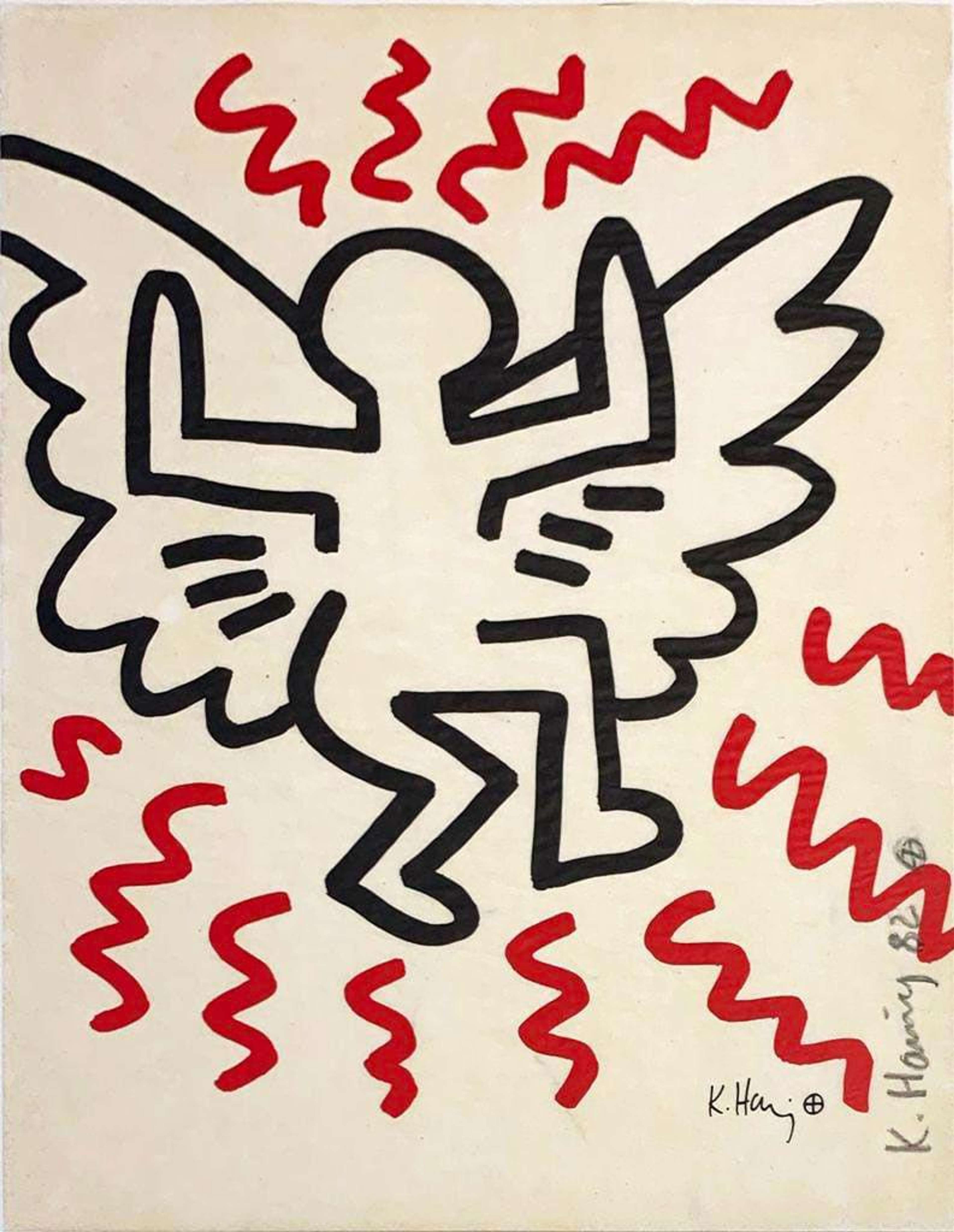
Bayer Suite 3
Bayer Suite 3
Signed Print
Keith Haring
£1,450-£2,200
$2,800-$4,200 Value Indicator
$2,700-$4,100 Value Indicator
¥13,500-¥21,000 Value Indicator
€1,650-€2,550 Value Indicator
$15,000-$23,000 Value Indicator
¥300,000-¥460,000 Value Indicator
$2,000-$3,000 Value Indicator
There aren't enough data points on this work for a comprehensive result. Please speak to a specialist by making an enquiry.
30 x 24cm, Edition of 70, Lithograph
Meaning & Analysis
This signed offset lithograph from 1982 is a limited edition of 70 from Keith Haring’s Bayer Suite series. Bayer Suite 3 shows an image of Haring’s famous angel icon, depicted in the artist’s trademark linear style.
Bayer Suite 3 is a lithograph from Keith Haring’s Bayer Suite series that was commissioned by Bayer AG in 1982 on the occasion of the release of the heart medication ‘Sali-Adalat’. The series includes some of Haring’s most recognisable pictograms, depicted in the artist’s trademark figurative style, and is limited to a colour palette of red, white and black.
Much like fellow graffiti artist Jean-Michel Basquiat, Haring reuses particular symbols throughout his artistic oeuvre to produce a memorable pictorial language. The central figure of Bayer Suite 3 resembles Haring’s famous angel icon, a winged figure with its arms and legs spread outwards. The angel motif is demonstrative of the way Haring shaped religious source material to reflect contemporary concerns of his generation and is used repeatedly by Haring, in works such as Marriage of Heaven and Hell (1984) and Anti-Nuclear Rally (1982).
Overflowing with paradoxical themes like life and death, good and evil, heaven and hell, Haring may have used the angel motif as a sign of how Bayer’s new heart medication will drastically improve people’s lives. Haring uses red zig-zag lines radiating from the central figure, who appears to be dancing, to produce a print that is bursting with energy and vigour.
